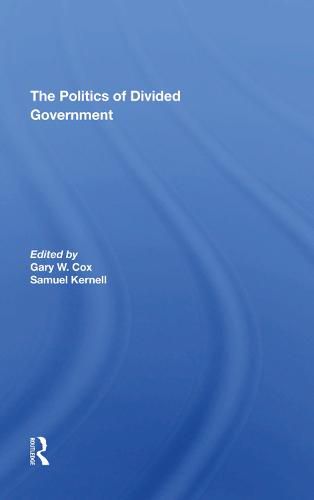Readings Newsletter
Become a Readings Member to make your shopping experience even easier.
Sign in or sign up for free!
You’re not far away from qualifying for FREE standard shipping within Australia
You’ve qualified for FREE standard shipping within Australia
The cart is loading…






Partisan conflict between the White House and Congress is now a dominant feature of national politics in the United States. What the Constitution sought to institute-a system of checks and balances-divided government has taken to extremes: institutional divisions so deep that national challenges like balancing the federal budget or effectively regulating the nation’s savings and loans have become insurmountable. In original essays written especially for this volume, eight of the leading scholars in American government address the causes and consequences of divided party control. Their essays, written with a student audience in mind, take up such timely questions as: Why do voters consistently elect Republican presidents and Democratic congresses? How does divided control shape national policy on crucial issues such as the declaration of war? How have presidents adapted their leadership strategies to the circumstance of divided government? And, how has Congress responded in the way it writes laws and oversees departmental performance? These issues and a host of others are addressed in this compact yet comprehensive volume. The distinguished lineup of contributors promises to make this book must reading for both novice and serious students of elections, Congress, and the presidency.
$9.00 standard shipping within Australia
FREE standard shipping within Australia for orders over $100.00
Express & International shipping calculated at checkout
Partisan conflict between the White House and Congress is now a dominant feature of national politics in the United States. What the Constitution sought to institute-a system of checks and balances-divided government has taken to extremes: institutional divisions so deep that national challenges like balancing the federal budget or effectively regulating the nation’s savings and loans have become insurmountable. In original essays written especially for this volume, eight of the leading scholars in American government address the causes and consequences of divided party control. Their essays, written with a student audience in mind, take up such timely questions as: Why do voters consistently elect Republican presidents and Democratic congresses? How does divided control shape national policy on crucial issues such as the declaration of war? How have presidents adapted their leadership strategies to the circumstance of divided government? And, how has Congress responded in the way it writes laws and oversees departmental performance? These issues and a host of others are addressed in this compact yet comprehensive volume. The distinguished lineup of contributors promises to make this book must reading for both novice and serious students of elections, Congress, and the presidency.